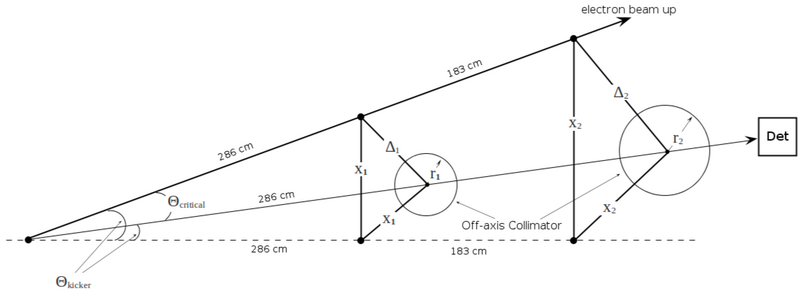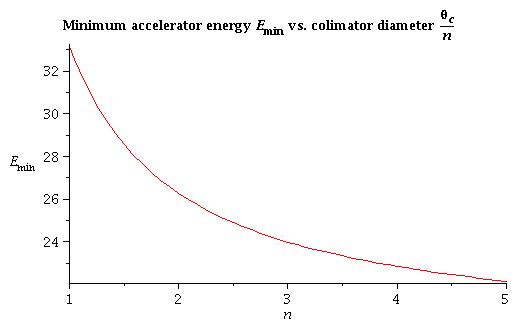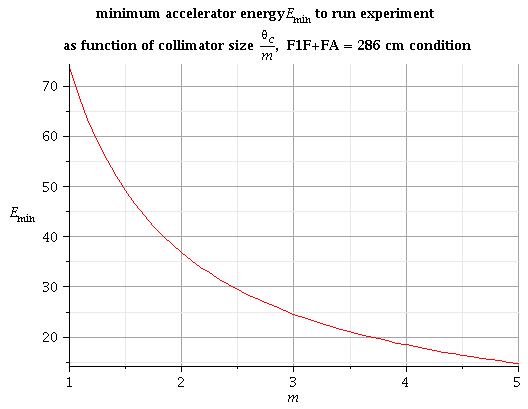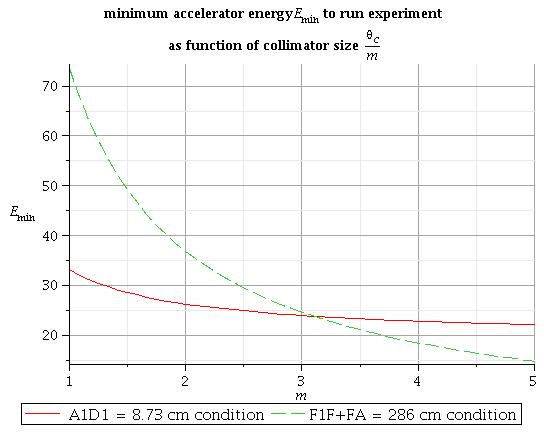Difference between revisions of "Minimum accelerator energy to run experiment"
Jump to navigation
Jump to search
(Created page with '[http://wiki.iac.isu.edu/index.php/PhotoFission_with_Polarized_Photons_from_HRRL Go Back] =Minimum accelerator energy to run experiment= ==condition 1: fitting the collimator s...') |
|||
| Line 1: | Line 1: | ||
[http://wiki.iac.isu.edu/index.php/PhotoFission_with_Polarized_Photons_from_HRRL Go Back] | [http://wiki.iac.isu.edu/index.php/PhotoFission_with_Polarized_Photons_from_HRRL Go Back] | ||
| − | + | =condition 1: fitting the collimator size into the hole= | |
| − | |||
| − | |||
| − | |||
| − | |||
| − | |||
| − | |||
| − | |||
| − | |||
| − | |||
| − | |||
| − | |||
| − | |||
| − | |||
| − | |||
| − | |||
| − | |||
| − | |||
| − | |||
| − | |||
| − | |||
| − | |||
| − | |||
| − | |||
| − | |||
| − | |||
| − | |||
| − | |||
| − | |||
| − | |||
| − | |||
| − | |||
| − | |||
| − | |||
| − | |||
| − | |||
| − | |||
| − | |||
| − | |||
| − | |||
| − | |||
| − | |||
| − | |||
| − | |||
| − | |||
| − | |||
| − | |||
| − | |||
| − | |||
| − | |||
| − | |||
| − | |||
| − | |||
| − | |||
| − | |||
| − | |||
| − | |||
| − | |||
| − | |||
| − | |||
| − | |||
| − | |||
[[File:min_energy.png|800px]] | [[File:min_energy.png|800px]] | ||
| Line 91: | Line 30: | ||
All energy above this line is good to run experiment | All energy above this line is good to run experiment | ||
| − | + | =condition 2: F1A = 286 cm= | |
1) assuming the collimator diameter is <math>\Theta_C</math> | 1) assuming the collimator diameter is <math>\Theta_C</math> | ||
| Line 111: | Line 50: | ||
All energy above this line is good to run experiment | All energy above this line is good to run experiment | ||
| − | + | =both conditions above are together= | |
[[File:plot_energy_bothcondition.jpeg]] | [[File:plot_energy_bothcondition.jpeg]] | ||
Revision as of 19:03, 14 June 2010
condition 1: fitting the collimator size into the hole
The minimum energy of accelerator (MeV) is limited by fitting the collimator size into the hole R = 8.73 cm:
1) Assuming the collimator diameter is :
2) Assuming the collimator diameter is :
3) Assuming the collimator diameter is :
4) for arbitrary collimator size :
All energy above this line is good to run experiment
condition 2: F1A = 286 cm
1) assuming the collimator diameter is
2) assuming the collimator diameter is
3) assuming the collimator diameter is
4) for arbitrary collimator size :
All energy above this line is good to run experiment
both conditions above are together
All energy above this lines is good to run experiment



